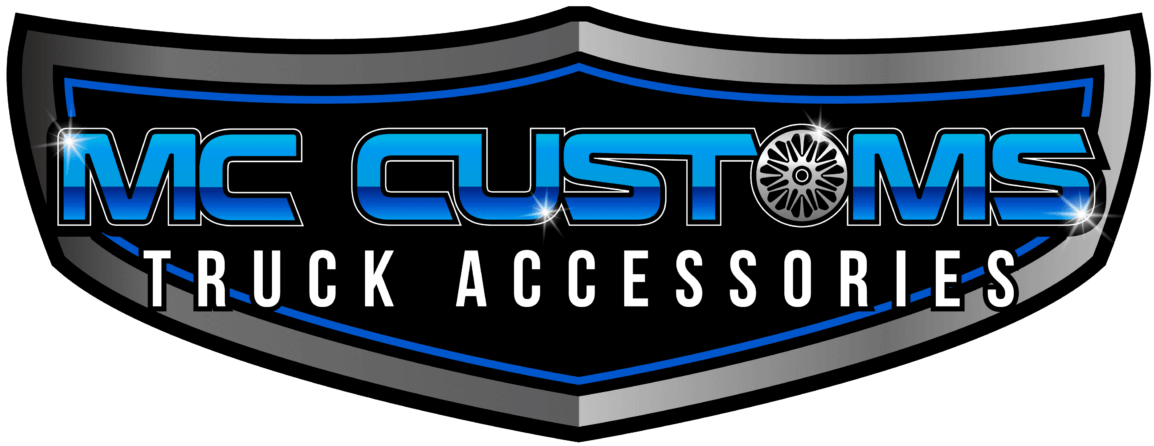The Differences Between 5th Wheel
& Gooseneck Trailer Hitches
June 2024
When it comes to towing heavy loads with your truck, two popular options stand out: the gooseneck hitch and the 5th wheel hitch. Both are designed to handle significant weights and provide stability, but they serve different purposes and have distinct advantages and disadvantages.
Whether you’re towing a camper, a horse trailer, or heavy machinery, understanding the differences between these two hitch types will help you make an informed decision.
Understanding the differences between gooseneck and 5th wheel hitches is essential for making an informed decision based on your specific towing needs. Both have their unique benefits and drawbacks, and the right choice will depend on your particular requirements.
At MC Customs Truck Accessories, we specialize in towing products of all kinds. We provide expert installation and advice to ensure you get the best performance out of your towing setup. Visit us today to talk towing products and find the perfect hitch for your truck.
Gooseneck Hitches
Gooseneck hitches are typically used in agricultural and commercial settings. They’re ideal for towing livestock trailers, flatbeds, and other large trailers. The hitch mounts in the bed of a truck and uses a ball and coupler system, similar to a standard trailer hitch but on a larger scale.
Advantages of Gooseneck Hitches
- High Weight Capacity: Gooseneck hitches can typically tow heavier loads than 5th wheel hitches, with a capacity often exceeding 30,000 pounds.
- Tighter Turning Radius: The design of a gooseneck hitch allows for a sharper turning radius, which is beneficial when maneuvering in tight spaces.
- Bed Space Flexibility: When not in use, the ball of the gooseneck hitch can be removed or flipped over, allowing for full use of the truck bed.
Disadvantages of Gooseneck Hitches
- Less Comfortable Ride: Gooseneck hitches tend to provide a rougher ride compared to 5th wheel hitches due to the lack of pivot points.
- Installation Complexity: Installing a gooseneck hitch can be more complex, often requiring drilling into the truck bed.
- Limited Trailer Compatibility: Gooseneck hitches are primarily used for commercial and agricultural trailers and are not compatible with most recreational trailers.

5th Wheel Hitches
5th wheel hitches are predominantly used for towing recreational vehicles (RVs), making them a popular choice for campers and road travelers. They also mount in the truck bed but use a kingpin and jaw system, which offers a different towing experience compared to gooseneck hitches.
Advantages of 5th Wheel Hitches
- Smooth and Stable Ride: The design of the 5th wheel hitch provides a smoother and more stable towing experience, which is crucial for long-distance travel.
- Easy Hookup and Unhooking: The hitching process is generally simpler and faster, which can be a significant advantage for frequent travelers.
- Enhanced Safety Features: Many 5th wheel hitches come with additional safety features such as locking jaws and hitch indicators to ensure a secure connection.
Disadvantages of 5th Wheel Hitches
- Lower Weight Capacity: While still substantial, 5th wheel hitches usually have a lower towing capacity compared to gooseneck hitches, often maxing out around 20,000 pounds.
- Reduced Bed Space: A 5th wheel hitch takes up more room in the truck bed and is more cumbersome to remove, which can limit your cargo space when the hitch is not in use.
- Higher Cost: 5th wheel hitches are typically more expensive than gooseneck hitches, both in terms of the hitch itself and the installation process.

Choosing the Right Trailer Hitch
When deciding between a gooseneck hitch and a 5th wheel hitch, consider the following factors:
- Type of Trailer: If you’re towing a commercial or agricultural trailer, a gooseneck hitch is likely the better choice. For RVs and campers, a 5th wheel hitch is generally preferred.
- Weight Requirements: Assess the maximum weight you plan to tow. For extremely heavy loads, a gooseneck hitch might be necessary.
- Towing Comfort: If you prioritize a smooth ride and ease of use, a 5th wheel hitch may be more suitable.
- Bed Space Needs: Consider how often you need the full use of your truck bed when the hitch is not in use.
Installation and Maintenance
Both gooseneck and 5th wheel hitches require professional installation to ensure safety and performance. Regular maintenance is also crucial. Check for any signs of wear or damage, and ensure all moving parts are lubricated. Keeping your hitch in good condition will prolong its life and maintain its towing efficiency.
